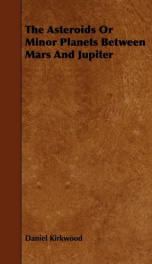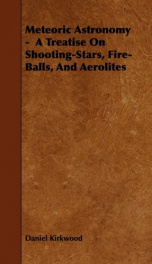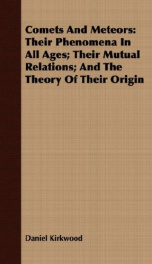the asteroids or minor planets between mars and jupiter

PREFACE. THE rapid progress of discovery in the zone of minor planets, the anomalous forms and positions of their orbits, the small size as well as the great number of these telescopic bodies, and their peculiar relations to Jupiter, the massive planet next exterior,-all entitle this part of the system to more particular consideration thrill it has hitherto received. The folIowing essay is designed, therefore, to supply an obvious want. Its results are given in some detail up to the date of publication, presents in a popular form the leading historical facts as to the discovery of Ceres, PaIlzls, Juno, Vesta, and Astrza a tabular statement of the dates and places of discovery for the entire group a list of the narnea of discoverers, with the number of minor planets detected by each and a table of the principal elements so far as computed. In Part 11. this descriptive summary is followed by questions relating to the origin of the cluster the elimination of members from particular parts the eccentricities and inclinations of the orbits and the relation of the zone to comets of short period. THE first observer who watched the skies with any degree of care could not fail to notice that while the greater number of stars maintained the same relative places, a few from night to night mere ever changing their positons. The planetary character of Mercury, Venus, Mars, Jupiter, and Saturn was thus known before the dawn of history. The names, however, of those who first distiglished them as wanderers are hopelessly lost. Venus, the morning and evening star, was Iong regarded as two distinct bodies. The discovery that the change of aspect was due to a slight planets change of position is ascribed to Pyt hagorae. At, the beginning of the seventeenth century but six primary planets and one satellite were known as members of the solar system. Very few, even of the learned, had then accepted the theory of Copernicus in fact, before the invention of the telescope the evidence in its favor was not absolutely conclusive.....
Info about the book
Author:
Series:
Unknown
ISBN:
0201328194
Rating:
4.5/5 (4)Your rating:
0/5
Languge:
English
Users who have this book
Users who want this book
What readers are saying
What do you think? Write your own comment on this book!
write a commentif you like the asteroids or minor planets between mars and jupiter try:
Do you want to read a book that interests you? It’s EASY!
Create an account and send a request for reading to other users on the Webpage of the book!




